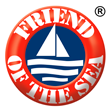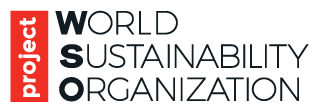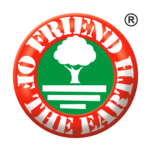The world shrimp industry has converged on Guangzhou, “the southern gateway to China”, for one of the biggest events that the industry has seen in recent times. Held from 6 – 9 November 2008, SHRIMP 2008 – the Global Technical and Trade Conference on Shrimp has drawn major industry players from across the globe. The four days event is organised by the Food and Agriculture Organization of the United Nations (FAO), the Chinese Ministry of Agriculture and the FISHINFONETWORK comprising the regional organisations of INFOFISH (Asia-Pacific), INFOYU (P.R. China), INFOPESCA (Latin America), INFOPECHE (Africa), INFOSAMAK (Arab countries), EUROFISH (Europe) and FIIU-GLOBEFISH. The event has been held back to back with China Fisheries & Seafood Expo 2008, Qingdao (4-6 November 2008).
Dr Paolo Bray – founder and director of Friend of the Sea – was invited by FAO to update the audience on the project shrimp certification developments. Dr Bray, who could not attend for personal reasons, was present at the conference with a video presentation which earned the audience’s attention.
The Friend of the Sea project has grown a lot in the field of shrimp certification. Three fisheries and one main shrimp producer have been audited and found to be compliant with Friend of the Sea criteria. Three more fisheries are under audit, while 4 farm producers have applied. Certified products include Tropical shrimps and also Pandalus borealis, the Northern Shrimp. Among the certified product brands displaying the ecolabel are Coop Italia from Italy; Gel-Pêche from France; Ristic from Germany; Norway Prawns, Nergard Reker, Stella Polaris, Lyngen Reker AS, Finny Sirevaag from Norway; Seacold from Singapore; Rainbow from Costa Rica; PT Panca Mitra Multi Perdana from Indonesia.
It is clearly very important for shrimp producers that Friend of the Sea can certify as sustainable products from both fisheries and aquaculture, something which no other international scheme can offer. “Companies also appreciate our effective on site audit and stringent criteria, which represent further assurance for consumers and companies themselves” adds Dr Bray “Certification was denied to several aquaculture producers and to some fisheries. Among other criteria, continuous monitoring of water parameters in farms and mandatory use of TEDs for fisheries are required, making the certification process very selective.”
Among the audited and compliant fisheries: the Norway trawl fishery in the Barents Sea, fishing for Pandalus borealis; the Indonesia trammel nets fishery fishing for Metapenaeus ensis and Penaeus indicus; the Madagascar trawlers fishery for P. monodon, P. Semisulcatus, P. indicus and M. monoceros.
In his Conclusion to the presentation, Dr Bray commented: “The Shrimp fisheries have until now always been mentioned by pressure groups, FAO and others as having the worst record in term of bycatch. However, the Pandalus fishery has taken steps since Y2000 and managed to dramatically reduce bycatch and seabed impact. Some Tropical Shrimp fisheries have also taken important steps to reduce their impact, while for some others there is still space for improvement. Same goes for aquaculture production which mostly needs to better monitor water quality and implement effective mangrove conservation. An external independent sustainabiltiy certification does surely help in recording the progress.”



